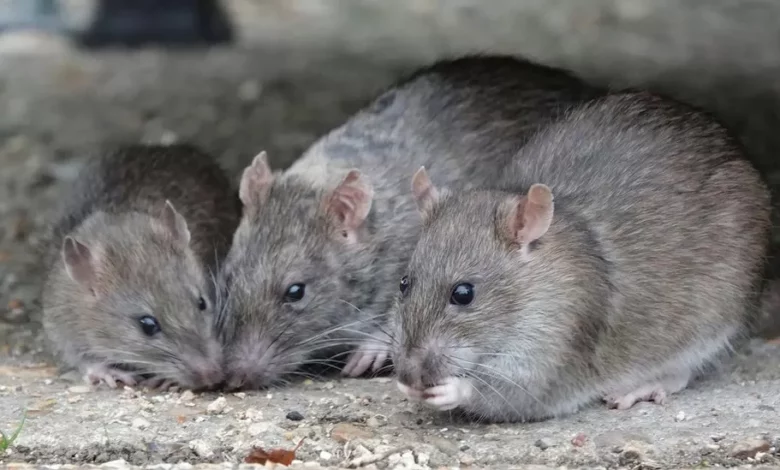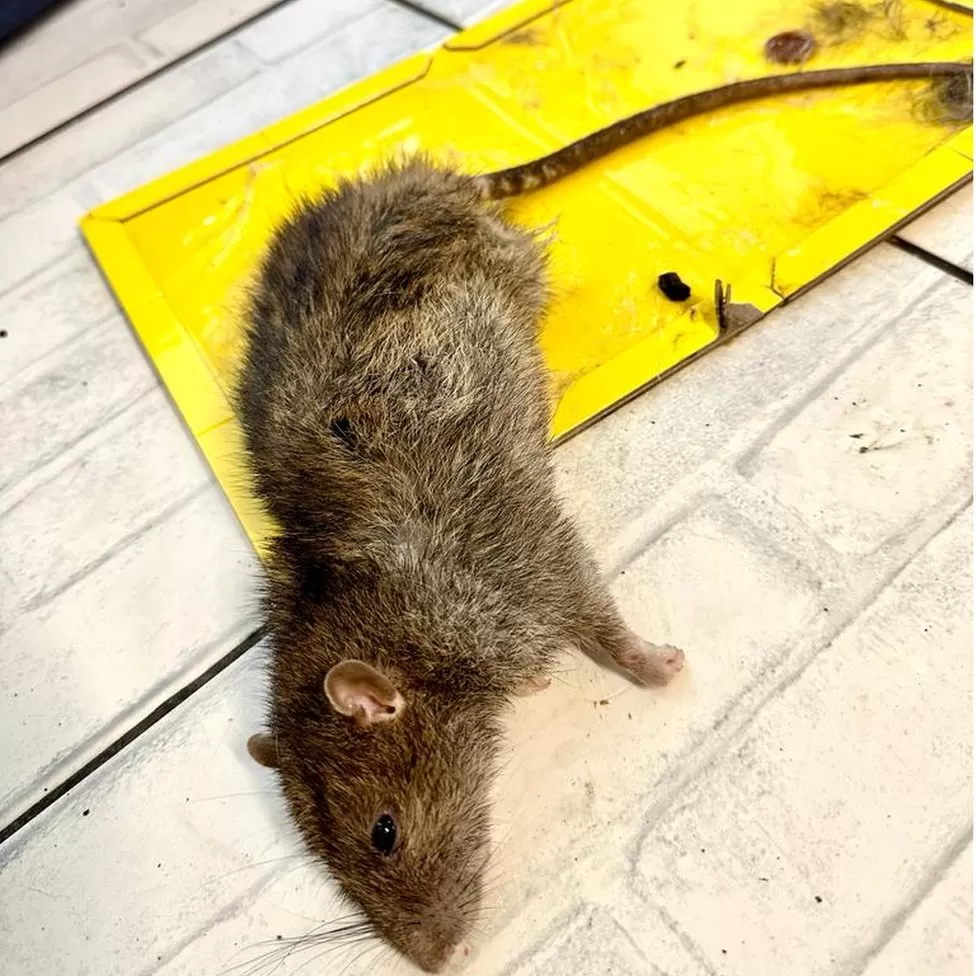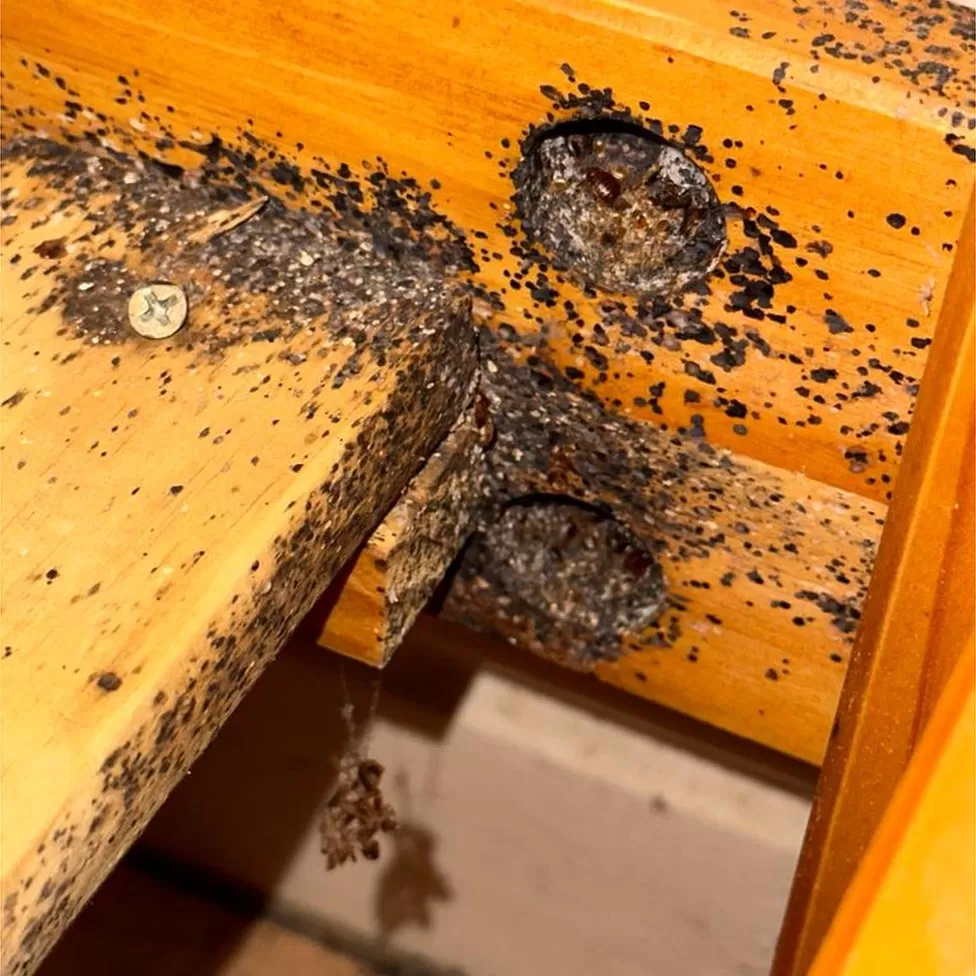Pest Controller Deems Glue Trap Ban Catastrophic Due to Rise in Rats


Gareth Davies, a seasoned pest controller, has voiced apprehension over the impending ban on glue traps, stating that it may result in the proliferation of “cat-sized rats” in urban areas.
Starting this Tuesday, the ban has raised concerns for both households and businesses, with Davies deeming it a potentially “catastrophic” development. He emphasized that professionals employ glue traps only as a final recourse, but worries that inexperienced individuals might misuse them, consequently complicating his line of work.
The Welsh government defended the decision, citing its aim to safeguard all forms of wildlife and curtail “immense suffering.”
Glue traps, also known as boards, are adhesive tiles positioned on the floor to ensnare rats, leading to their eventual demise.
WARNING: Article contains graphic images
In addition to glue traps, the ban encompasses the use of snares and is a significant milestone in the recently passed Agriculture Bill within the Senedd, marking a pioneering move for the UK.
With 34 years of experience in the field, Gareth noted that the rat predicament has never been more severe. He recounted a recent incident in a city centre restaurant where he was summoned by a customer. Upon inspection, he discovered an exceptionally large rat wedged between an oven and a fryer, dubbing it the largest he has encountered to date.


He stated that it measured approximately 64cm, akin to the size of a small cat.
Regarding the ban, he referred to it as “catastrophic for the city centres,” and stressed that professionals conducted routine checks on traps to prevent any undue suffering.
He acknowledged that the use of traps could be viewed as “barbaric,” but emphasised that they were always a last resort.
He pointed out, “However, when you have a rat darting around in a restaurant, it becomes the sole option to capture it. What will be the course of action in such scenarios going forward?”


He mentioned that in cities such as Cardiff and Wrexham, rats are displaying an increasing level of wariness towards traps. He cited an instance where they evaded both traps and poison for weeks until he resorted to using sticky boards, resulting in the capture of 15 rats during a 6:00 AM visit.
Furthermore, in densely populated student areas, he finds himself attending two to three call-outs a day. In cases where traps or poison prove ineffective, businesses may find themselves compelled to close in order to tackle the issue.
He suggested that an alternative solution could involve prohibiting the retail sale of glue boards and providing professionals with enhanced training on their proper use.
“At present, we’re attempting to carry out our duties with one hand figuratively tied behind our backs because we have no other resources to assist us,” he stated.
Billie-Jade Thomas, representing RSPCA Cymru, expressed support for the ban, asserting that these devices lead to immense suffering for animals. She added, “Our officers have far too often encountered animals in severe pain and misery due to these cruel, indiscriminate, and entirely unnecessary tools.”
Thomas noted that the ban followed a consultation period, which received backing from organisations including the RSPCA and the British Veterinary Zoological Society. She pointed out that some councils had already implemented the ban and reported experiencing “no negative” repercussions.
A spokesperson for the Welsh government emphasised the severe harm that rodents can endure, highlighting that they can sustain painful injuries and suffer greatly before succumbing. In some cases, an animal may even attempt to gnaw its own limb to break free. Trapped animals frequently experience exhaustion, dehydration, and starvation, and may even drown in the glue.
The spokesperson concluded, “There are more effective and humane methods available for rodent control, which are widely employed.”









